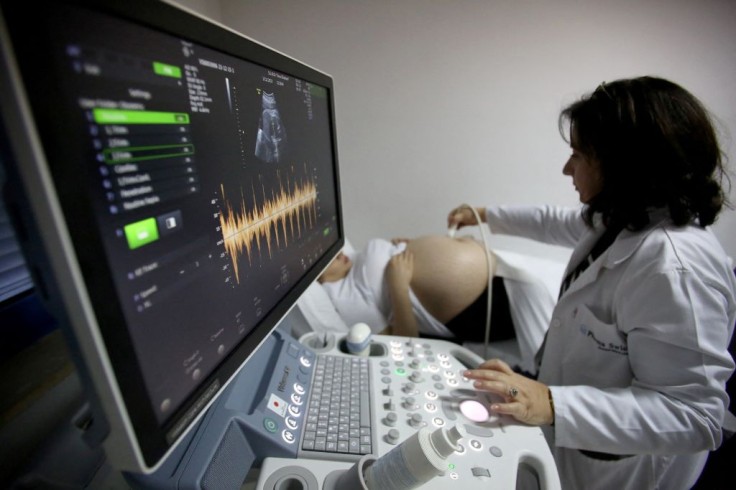
If you've recently taken an affirmative pregnancy test, you likely have a variety of questions, shifting from "when is the feeling of baby kicking" to "when does morning sickness end."
One definite inquiry that may be on head is when you'll be able to listen to the baby's heartbeat. Happily, the result may come sooner.
The Moment When You Can Hear the Baby's Heartbeat
The first "whoosh whoosh" of the baby's earliest cardiac activity is among the initial signs that doctors examine during pregnancy confirmation appointments.
This early heartbeat may be evident as early as 5 1/2 to 6 weeks through a transvaginal ultrasound.
The embryonic cardiac activity, signaling the dawning of the baby's cardiac cells, begins approximately 22 days after fertilization, pulsing an average of 110 times a minute.
Although this first heartbeat isn't yet loud, ultrasound technology allows you and your healthcare provider to envision it.
The latest exposure of the baby's cardiac activity is commonly between five and six weeks of pregnancy, during which you will witness the "heartbeat" through an ultrasound image rather than hearing it through a Doppler, as the baby is still too little for explicit auditory exposure.
If the heartbeat is not clear during the initial visit, there's no need for uneasiness, as it may still be too recent, especially if there are changes in menstrual cycle length.
Read Also: Early Pregnancy Symptoms: Guide on What To Do and Avoid During the First Trimester
Methods in Monitoring Baby's Heartbeat
Throughout the pregnancy, various methods are employed to monitor the baby's heartbeat. Initially, transvaginal ultrasounds are commonly used, progressing to fetal Dopplers as the pregnancy advances.
Fetal Dopplers, handheld devices capable of detecting the heartbeat as early as 8 weeks, may face challenges due to factors like the uterus's position at this early gestational age.
Routine ultrasounds also serve as a means to oversee the baby's heartbeat during pregnancy.
While a stethoscope can ultimately be used to hear the baby's heartbeat, it is not achievable in the early stages, commonly becoming efficient around 18 to 20 weeks when the fetus is bigger.
Despite the existence of apps like BabyDoppler that claim to assist in monitoring the baby's heartbeat, it's essential to exercise caution.
Research suggests that these apps may not always be accurate, and it is crucial to consult with a healthcare provider before using home dopplers due to potential fetal risks.
Additionally, using apps as a substitute for prenatal appointments is not recommended.
Mom's First Ultrasound Experience
For those expecting their first ultrasound, it is a breathtaking event, although some medical practices schedule it between 11 and 14 weeks.
However, under certain coincidence, such as having a medical history, encountering a past miscarriage, or facing difficulty in enduring pregnancies, your doctor might advise an prior ultrasound, possibly as early as six weeks.
During this first ultrasound, the healthcare provider determines factors like ectopic or non-viable pregnancies, verifies the pregnancy's activity, checks the baby's heartbeat, and figures gestational age by measuring the length between the baby's crown and rump.
In cases where the heartbeat isn't heard, different factors like a tilted uterus, a large belly, or the baby's position could be conditioning the outcome.
It's crucial to note that not detecting the heartbeat during the initial ultrasound doesn't automatically indicate an issue, and a follow-up ultrasound may be confirmed.
Additionally, fetal heart rates differ throughout pregnancy, beginning between 90 and 110 bpm in the early weeks, peaking at 140 to 170 bpm around weeks 9 to 10, and eventually ranging from 110 to 160 bpm during the second and third trimesters.
Routine examination of the baby's heartbeat during prenatal consultation helps determine any inconsistency, and if needed, further determination like a fetal echocardiogram may be recorded to assess the baby's heart status.
Related Article: Potential Pregnancy Time Frame: How Many Days After Your Period Can You Get Pregnant?